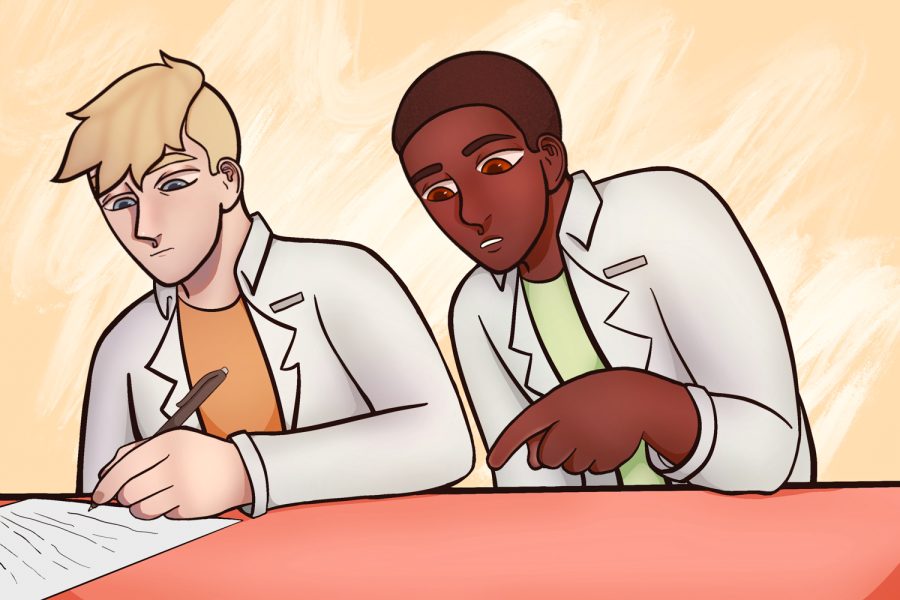STEM writing center will open this fall
Center hopes to provide in-person tutors, online practice
WSU student and faculty surveys found STEM students often struggle with “learned helplessness.”
August 18, 2022
The STEM Writing Center received a $5,000 Smith Teaching and Learning Grant to open a physical location on the WSU Pullman campus this fall.
The writing center is expected to open in person on Oct. 1. The location is still being determined, said Philip Mixter, instructor and assistant director of microbiology.
The purpose of the center is to provide support for students seeking to better articulate scientific concepts in class and their future professions, Mixter said.
“What we want to do is essentially provide the same sort of support that the WSU Writing Center supports across the university with discipline-specific knowledge,” he said.
The center will be open for in-person tutoring and will have an online conference component so that students can also attend remotely, he said.
Tutors will consist of higher-level students with experience in scientific writing, he said. The center is actively seeking students to fill these tutor positions.
He said students interested in tutoring can contact any one of the investigators, Mixter, Michael Dunn, College of Education associate professor, and Martina Ederer, College of Veterinary Medicine assistant professor.
The center will also have a web page containing links to online resources and videos so students can practice independently, he said.
“The resources are going to evolve,” he said. “Our goal is to collect a lot of feedback about how it’s going, what students need, what we can provide, and how we can do this better.”
In 2021, STEM students and faculty on both Vancouver and Pullman campuses were surveyed to find trends with students’ current writing ability, said Michael Dunn, associate professor of special education and literacy at WSU Vancouver.
The data collected from the surveys provides evidence to justify support for the STEM writing center, Mixter said.
The surveys included a series of questions about whether students enjoyed writing, understood what was expected of their writing and sought texts to provide good examples of professional writing, Dunn said.
One of the challenges they found was a sense of “learned helplessness.” Students who believed they were inherently bad at writing were less likely to attempt to improve, he said.
“There is a wealth of intervention research that says intervention programming can help people improve their skills, and that includes writing,” he said. “If people are willing to invest even a small portion of time to learn a new strategy … it could make a real difference.”
Creating early interventions is the aim of the center, said Emma Ledbetter, research collaborator and WSU alumna.
Ledbetter said STEM students who do not develop writing skills early in their college career will have difficulty in writing-heavy upper division classes.
“We recognize that you can get into college and not necessarily be a strong writer, but we want you to leave college being a strong writer. Especially in STEM, where you have to communicate your writing not only with scientists, but with the public,” she said.
Some common issues students face include grammar, effective articulation and tailoring the message to the audience, she said.
Instructors of large, lower division STEM classes are encouraged to promote the center in lectures, Mixter said.
“The bottom line is that we want students to succeed. We want to equip them. We can’t write that paper for them, but we can coach them on the writing … they can show off their conceptual knowledge and convey it,” he said.















